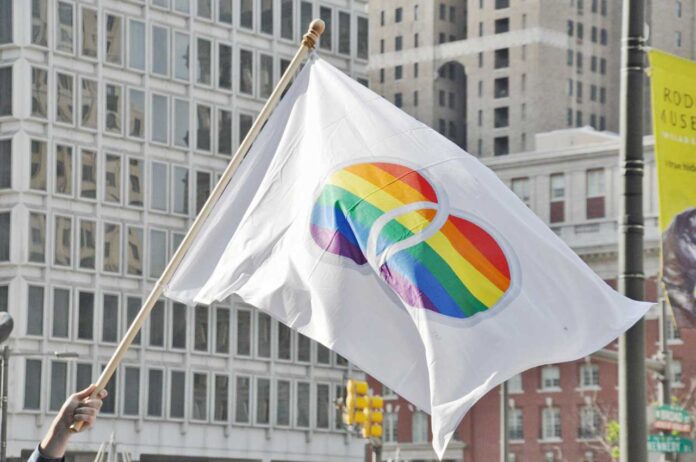We were only 13 when we first met, taking the bus to the Philadelphia High School for Girls. It was the beginning of our long journey to now.
We dated in high school — until I was expelled for being a lesbian and put in a mental hospital for conversion therapy. We reconnected in college and dated for a while, then I left Philadelphia to join the domestic Peace Corps, she went off to graduate school, and we both got involved with other people. A mutual friend brought us back together 21 years ago after we had each ended long-term relationships. We’ve been together ever since.
When the U.S. Supreme Court legalized same-sex marriage, I asked her to marry me. She said yes.
I took to Twitter with that announcement and the response was overwhelming. So many people were happy for us. It was delightful, the congratulations and well wishes.
The feeling was new and different and I savored it. I hadn’t been a big fighter for marriage equality; the feminist in me thought it was a bogus enterprise that entrapped women. But marriage is also protective. My previous partner and I had been together for over a decade, without the legal benefits of marriage. I didn’t think it mattered until we broke up and the house we’d bought together was in her name despite me paying the mortgage all along. Divorces may be messy, but legal limbo is far worse.
The traditional words of the marriage ceremony are meant to cover all the eventualities of a life together: the bliss of young love, complexities of middle age and the sometimes grim realities of growing old together. We plight our troth for better or worse, richer or poorer, in sickness and in health.
We thought we had another couple decades before that last part would matter. Yet soon the word “wife” took on a different meaning and much deeper import than either of us could have imagined. At the end of the summer of 2015 I was rushed to the hospital with what turned out to be a pulmonary embolism and a collapsed lung. I spent three weeks in ICU. She slept on a cot in my room.
The word “wife” was magic. The word “wife” opened doors. The word “wife” meant she could demand things for me and doctors and nurses had to listen. The word “wife” meant she could lie next to me on the narrow bed with her arms around me and no one could say a word.
In 1994 I’d had a heart episode that put me in the cardiac intensive care unit. They tried to shock my heart back to normal in the ER when the medics brought me in, but it didn’t work. I was in critical condition.
While the doctors tried other remedies, my former partner sat with me until visiting hours were over. But we had no legal connection, so she couldn’t stay. I was a columnist at the Daily News then and I wrote about it. I wrote about how frightened I was, alone, my heart beating out of my chest, the burns of the electric paddles seared above my breasts. I needed the partner I thought of as my wife, but the law said she was a stranger because we were lesbians who could never marry. The column caused a flurry of responses and was nominated for a series of prizes. But 20 years would pass before the Supreme Court caught up to what I’d written.
On August 4, Anderson Cooper aired an interview with a man whose husband, an ICU doctor, had died of COVID-19. David Hart talked about his husband, Dr. Joseph Costa. “I was just not going to not be able to touch him with my bare hands, with my cheek,” Hart said. He removed his PPE to touch his husband as he lay dying. “I just took it off… I wasn’t supposed to do that… but it was what I wanted to do for him.”
The joy that marriage brings us doesn’t need validation: Joy is its own validation. But the things we hope won’t befall us, like a husband dying of COVID in a pandemic — that is so different. In sickness and in health. As this pandemic rages around us, it’s hard not to think of the last one and how many gay men died alone because they couldn’t marry, because their lovers were legal strangers. Or how many homophobic families refused to let their sons’ partners be with them.Five years after Obergefell v. Hodges, in the midst of a new pandemic, marriage equality is still quite new. Yet now those words — husband, wife, spouse — belong to us, too. And no one can separate us from those we love ever again.

